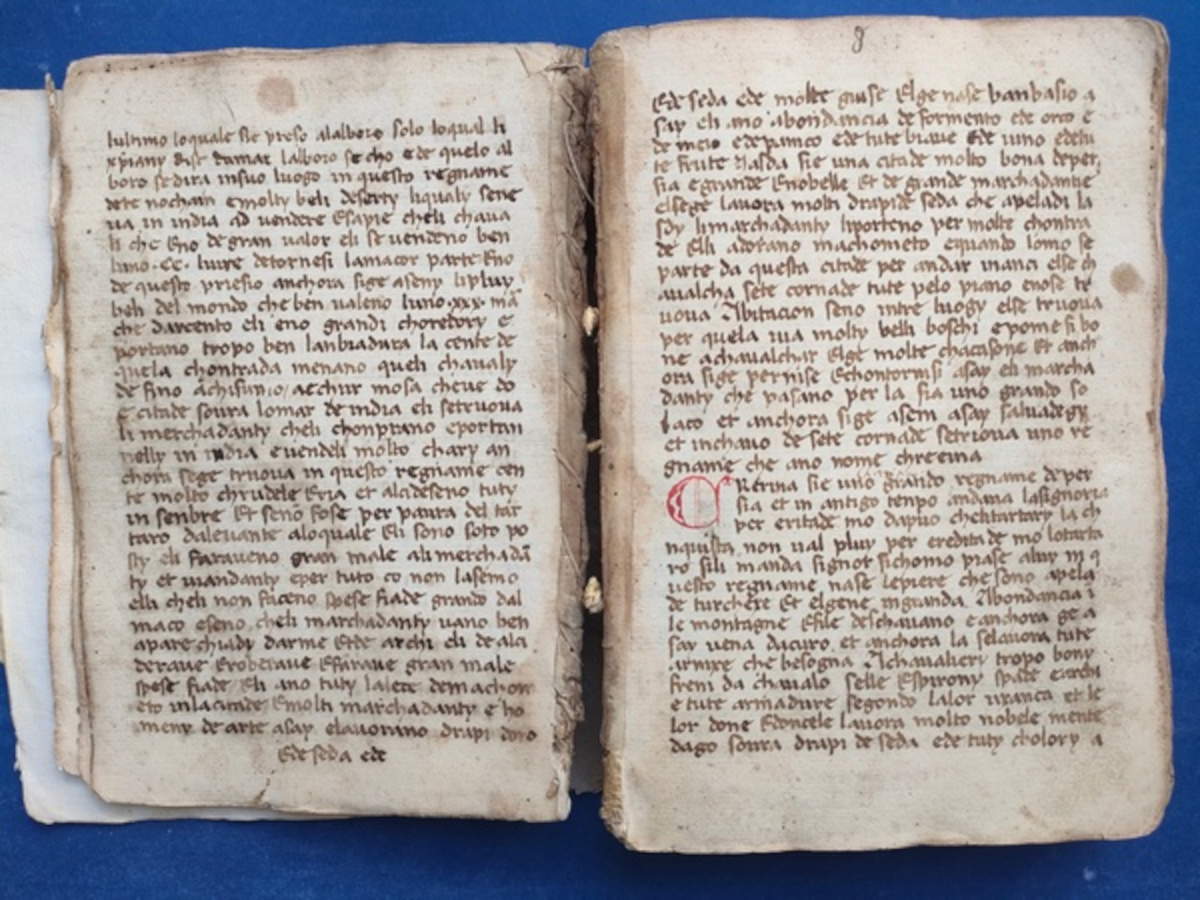A manuscript of the Devisement dou monde, also known as The Million, has been found. Although already mentioned in some catalogs, this manuscript was unknown to scholars of Marco Polo, whose seven hundredth anniversary of his death falls this year, and absent from all previous cataloging of the work. This new find represents the 145th known codex of the famous Venetian traveler’s work. The manuscript is kept at the Ludovico Jacobilli Diocesan Library in Foligno, with marker Jacobilli A.II.9, and conveys the translation that scholars call VA, made within the first quarter of the fourteenth century in northeastern Italy.
The importance of this discovery is part of a large research project coordinated by Eugenio Burgio, Marina Buzzoni, and Samuela Simion of Ca’ Foscari University and Antonio Montefusco of Nancy University. The manuscript offers new and relevant information on the various versions and circulation of Marco Polo’s work, enriching the history of the text’s dissemination. The fame of The Million generated a wide range of translations, adaptations and rewritings, each reflecting the contexts in which it was read. The importance of this translation lies above all in the extent of its dissemination: indeed, VA’s text was subjected to numerous translations, both Latin and vernacular, so much so that most of the surviving manuscripts are, directly or indirectly, an emanation of it. It is therefore the version in which Marco Polo’s book was most widely read and known in Europe. It had an early circulation in the area of Emilia and Lombardy, although little is known about the environment in which it was produced. Moreover, in this manuscript the translator does not hesitate to cut out heterodox or scabrous information, which suggests that it came from a religious environment.
Pointed out by Fabio Soncin, a doctoral student in the Department of Comparative Linguistic and Cultural Studies at Ca’ Foscari University Venice (under the supervision of Marina Buzzoni, PI of a PRIN PNRR 2022 project), who had viewed it during a visit to Foligno, it is librarian Ivan Petrini from the Foligno Library who gives an initial presentation: it is a fifteenth-century manuscript, written by a single hand in a humanistic minuscule; it is a paper of 110 papers, lacking the initial papers and some internal papers. The document’s origin and history remain uncertain, but it is known that it is part of the collection donated by Ludovico Jacobilli to the library between 1662 and 1664, but it is unclear where and when the scholar from Foligno came into possession of it.
Samuela Simion of Ca’ Foscari University confirmed its importance and identified the VA translation within it. In the coming months, further study of the manuscript is expected in order to place it more precisely within the tradition of the Polean work.
This finding comes just days before the conference Marco Polo, the Book and Asia. Research Perspectives Twenty Years Later, organized by Ca’ Foscari University as part of the official celebrations for the 700th anniversary of the death of the Venetian explorer, and supported by the National Committee and the Ministry of Culture, with the sponsorship of Rai Veneto and Rai Cultura. One session of the conference will be devoted to the digital edition of the great traveler’s work.
 |
| Manuscript of The Million found: it is the 145th known codex of Marco Polo's work |
Warning: the translation into English of the original Italian article was created using automatic tools. We undertake to review all articles, but we do not guarantee the total absence of inaccuracies in the translation due to the program. You can find the original by clicking on the ITA button. If you find any mistake,please contact us.